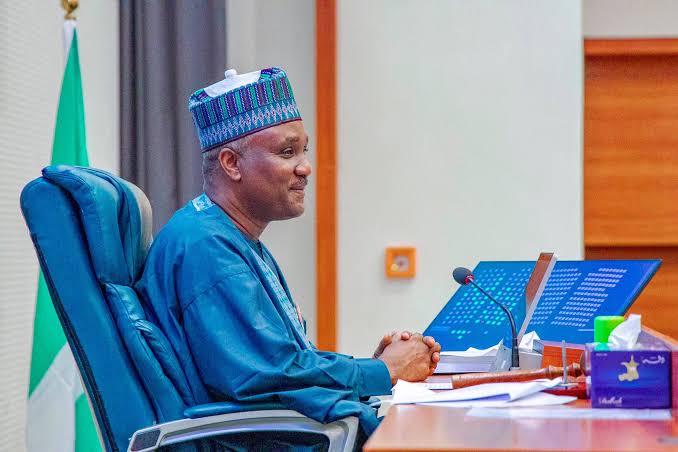The Speaker of the House of Representatives, Tajudeen Abbas, on Monday, said it was high time the nation tried the non-kinetic strategy as crazy of measures to contain the insecurity ravaging parts of the country.
Abbas made the call in Abuja at a workshop, organised by the House in collaboration with the Konrad Adenauer Stiftung (KAS) on the “Strategies for Advancing Non-Kinetic Approaches to Tackling Insecurity and Terrorism in Nigeria.”
He stressed the importance of diplomatic dialogue, economic empowerment, psychological interventions, and community-based initiatives as vital components of a sustainable security framework.
He cited examples from countries like Rwanda and Kenya, where non-kinetic strategies have significantly reduced the appeal of extremist ideologies and fostered reconciliation.
Nigeria, according to Abbas, has invested heavily in military operations over the past two decades, with billions of dollars allocated to defence.
He revealed that in 2024, N3.25 trillion, or 12% of the national budget, had been allocated to defence and security. While acknowledging the necessity of military action, he emphasized that a more cost-effective and sustainable approach would be to invest in critical sectors like education, healthcare, and infrastructure—areas that address the root causes of insecurity.
According to him, “Relying solely on force risks treating symptoms rather than addressing the underlying causes of insecurity”.
The speaker pointed to successful non-kinetic measures in Nigeria, such as the Operation Safe Corridor program, which focuses on the deradicalisation and rehabilitation of former insurgents, as proof that alternative strategies can work.
He further highlighted the importance of community policing, made possible by the Police Act of 2020, as a key element in bridging the gap between law enforcement and local communities. This approach, he noted, builds trust and empowers citizens to actively safeguard their neighborhoods.
The speaker also announced the formation of a new Standing Committee on Peacebuilding and Social Cohesion within the House of Representatives. The committee will develop policies to promote peace and stability, marking the first such initiative in Nigeria and potentially in Africa. He thanked the United Nations Development Programme (UNDP) for its support in establishing the committee.
Abbas expressed his appreciation to all participants for their contributions and urged them to consider non-kinetic approaches as complementary to military efforts in securing the nation.
He reaffirmed his commitment to seeking innovative solutions that not only address immediate security threats but also focus on the long-term causes of insecurity in Nigeria.
In her opening remarks, Marija Peran, Resident Representative of Konrad Adenauer Stiftung (KAS), praised Speaker Abbas for his leadership and initiative in organizing the workshop.
“It was also Mr Speaker personally who initiated this very important event, and KAS is very grateful that we can partner on this once more.”
She emphasised the importance of non-kinetic strategies in creating sustainable peace and security, arguing that military might alone cannot solve Nigeria’s complex security problems.
“Non-kinetic approaches, which focus on addressing the root causes of conflict and fostering sustainable peace, are essential for creating a secure and stable Nigeria,” Peran said.
She highlighted that these strategies include economic development, education, community engagement, and promoting good governance, all aimed at addressing the underlying social, economic, and political factors that fuel insecurity and terrorism.
Peran pointed to economic development as one of the most effective tools in reducing insecurity, explaining that poverty and unemployment create fertile ground for extremist ideologies.
“By promoting economic opportunities, particularly in vulnerable regions, alternatives to violence can be provided, and the appeal of terrorist groups reduced,” she said. This includes investments in infrastructure, support for small and medium-sized enterprises, and job creation, particularly for women and youth.
She identified education as a potential solution saying “This includes not only formal education, but also vocational training and civic education that promotes tolerance and understanding”.
Peran noted that “Mismanagement of funds, lack of accountability, and weak institutions undermine efforts to tackle insecurity and terrorism,” Peran said, calling for greater transparency, stronger institutions, and the rule of law to build trust between the government and the people.
Peran underscored the pivotal role the legislature plays in advancing non-kinetic approaches, noting that legislators are responsible for shaping policies, allocating resources, and holding the executive accountable.
“The legislature has a crucial role to play in this endeavour, and it is a collective responsibility to ensure that these strategies are prioritised and effectively implemented,” she said.








